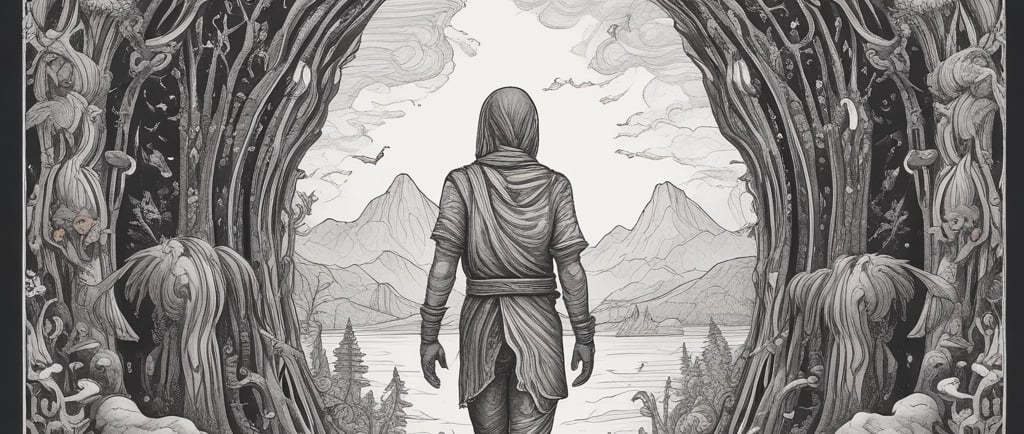Aut Nihilo in Qingdao: Stefanie Sun and the Economics of Belief
Stefanie Sun’s Aut Nihilo concert in Qingdao didn’t just entertain—it reoriented a city’s infrastructure, gender dynamics, and emotional grammar. This piece traces how cultural presence became economic momentum, and how a quietly powerful performance stirred systems into belief.
7/25/20252 min read


Aut Nihilo in Qingdao: Stefanie Sun and the Economics of Belief
A concert is supposed to entertain. But Stefanie Sun’s performance in Qingdao rearranged the city. Malls filled details of her concert everywhere. Hotels positioned themselves as a convenient rest place for her concert goers. Tourist sites discounted entry if you hold the entry ticket to the concert. Police coordinated routes. And somewhere in the center of it all, a woman stood singing lyrics that felt like literature.
This wasn’t just logistics. It was choreography. Infrastructure bending to amplify presence. Culture becoming capital.
Concert as Catalyst: The Economics of Influence
Qingdao didn’t just host a show—it staged an ecosystem. Aut Nihilo, Latin for “or nothing at all,” became a city-wide spell. One singer’s return sparked an avalanche of economic activity, civic coordination, and social reverence.
The crowd skewed heavily female—working women of various ages, many with the disposable income and autonomy to spend freely. They were not just fans; they were economic participants. Some men were present, often as companions, but the purchasing power and cultural enthusiasm radiated from women reclaiming space, sound, and spirit.
Can a performer “pay” for public goods? Does cultural presence warrant police escort, traffic rerouting, media amplification? These questions aren’t just about policy—they’re about what we choose to elevate, and why. When icons become engines of domestic tourism, they shape resource allocation in ways spreadsheets can't quite capture.
Sun as Spirit: Feminine Evolution and Cultural Mythmaking
Stefanie Sun no longer trades in heartbreak ballads. She’s channeling something subtler—a kind of feminine evolution marked by resilience, ambiguity, and quiet defiance.
Her songs are like another kind of religion. Not dogma, but devotion. She sings not to possess truth, but to witness it.
Raised in Singapore’s multilingual pragmatism, Sun emerged as an archetype of empowered gentleness. Her lyrics validate emotion without spectacle. Her public image asserts depth without noise. This is not just celebrity. It’s mythmaking.
Bearing Witness: A Gaze of Reverence, Not Ownership
As a middle-aged man, I didn’t come to reclaim youth. I came to observe its evolution. And in that act—of bearing witness rather than resisting change—I found a tender power.
This wasn’t my demographic. It wasn’t built around male sentimentality or traditional heroism. But the resonance was unmistakable. I watched women sing along to lyrics that validated independence, complexity, and joy. Some had partners beside them—male and female—but the emotional center belonged to them.
Ritual Over Performance: The Spiritual Grammar of Aut Nihilo
Aut Nihilo reframed the evening from comeback to ritual. It wasn’t: “Here I am again.” It was: “Either I show up fully, or not at all.”
And maybe that’s why the experience lingered. It demanded participation, presence, belief. Not just in Sun—but in what she symbolized. Agency that doesn’t shout. Systems that move around meaning. A city that becomes a stage for something deeper.
Conclusion: Witnessing What We Hope Will Endure
In Qingdao, I didn’t just attend a concert. I witnessed alignment—between voice and values, infrastructure and intention, femininity and financial power.
Her songs didn’t just echo in my ears. They settled like scripture. A quiet religion, singing of agency, belonging, and the courage to be fully present.
And beneath it all, I saw the rare convergence: a stage personality—perhaps authentic, perhaps constructed—that perfectly met the emotional and cultural needs of the era. Aut Nihilo wasn’t just a return. It was the making of resonance at the turn of a tide. A kind of luck, yes, but also clarity, timing, and truth.